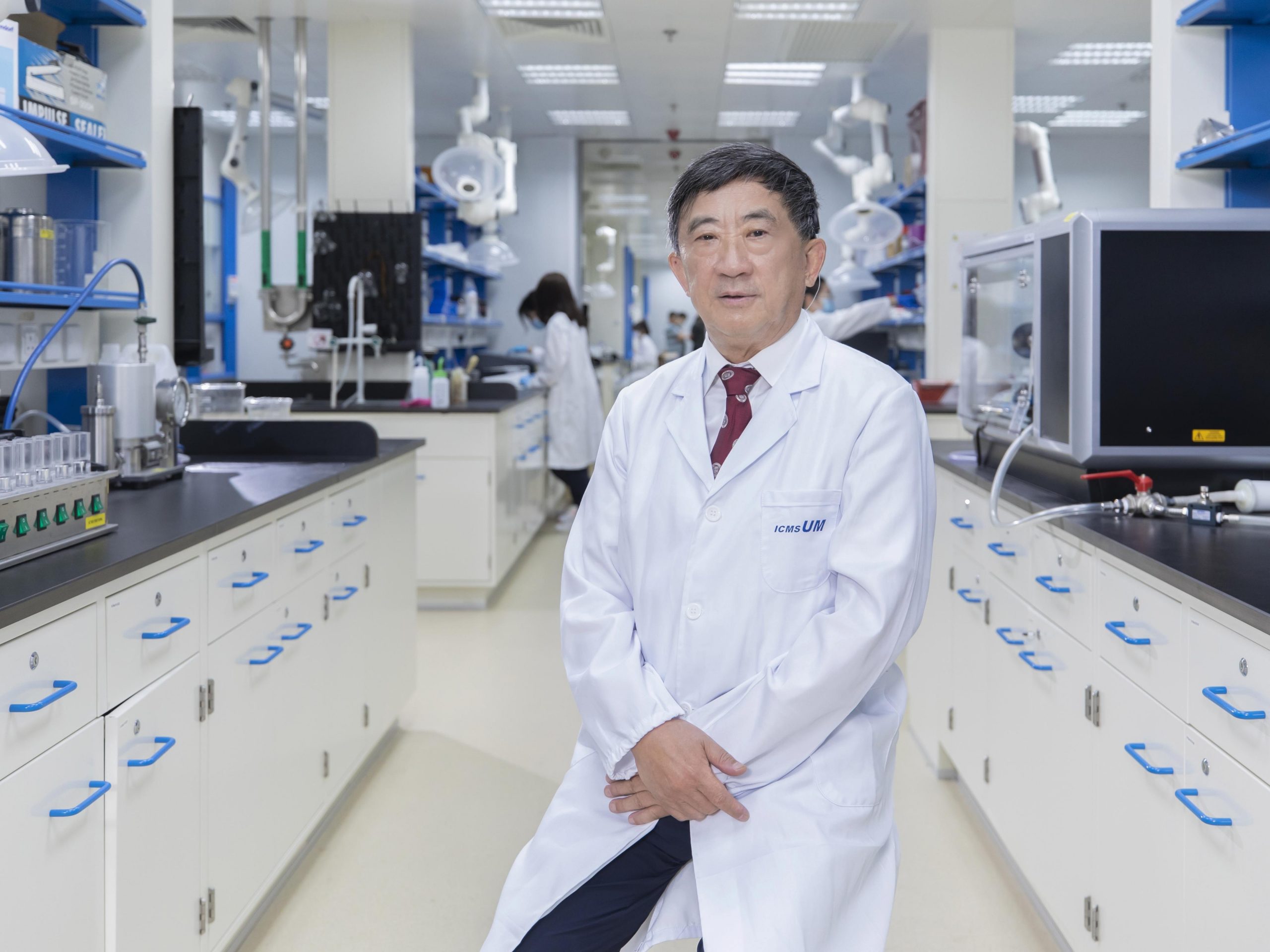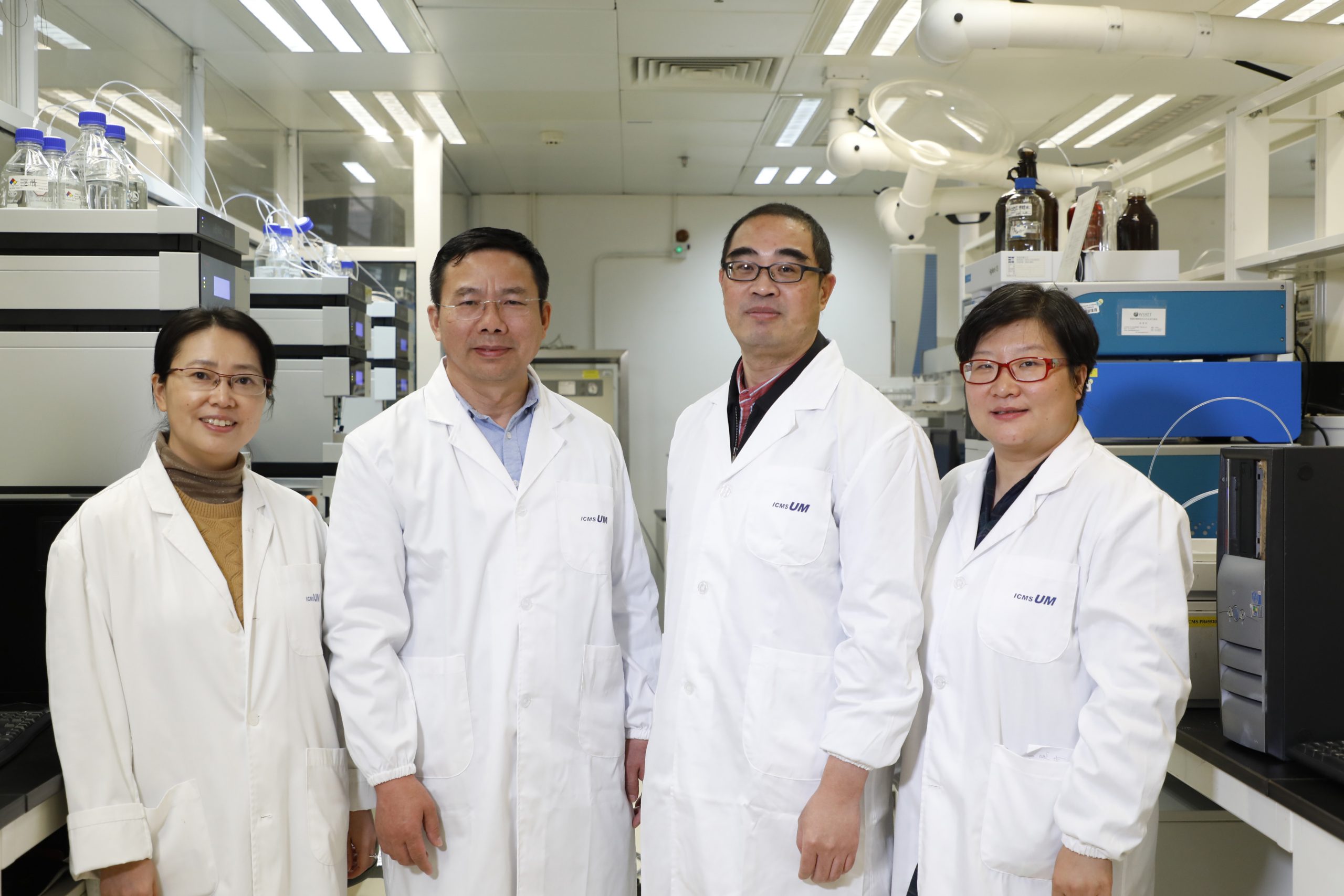To support the moderate diversification of Macao’s economy, research teams at the University of Macau (UM) have made impressive progress in forging business partnerships, nurturing talent, creating platforms for international cooperation, and pushing forward the standardisation and internationalisation of Chinese medicine. The teams led by Prof Wang Yitao and Prof Li Shaoping have also established quality standards for over ten Chinese medicinal plants for authoritative publications such as European Pharmacopoeia (Ph. Eur.), United States Pharmacopeia (USP), and Chinese Pharmacopoeia (ChP), in order to support the health industry in Macao and other parts of the Guangdong-Hong Kong-Macao Greater Bay Area.
According to Prof Wang Yitao, director of the State Key Laboratory of Quality Research in Chinese Medicine (SKL‑QRCM), UM has established a world-leading platform for innovation in Chinese medicine research and development. The university is also supporting the health industry and high‑tech industries with TCM as an initial focus, exploring better mechanisms for industry‑academia collaboration, and gaining vital experience for the commercialisation of other UM research outcomes. UM has established a TCM research centre with China Resources, Guangzhou Pharmaceuticals, and the China Academy of Chinese Medical Sciences. This centre will join SKL‑QRCM and ICMS to study and produce Chinese medicine and push forward the commercialisation of their research outcomes. Furthermore, UM has established joint laboratories with all three regulatory bodies in the US, Europe, and China, namely the United States Pharmacopoeia Convention (USPC), the European Pharmacopoeia Commission (Ph. Eur. Commission), and the Chinese National Institutes for Food and Drug Control, in order to set standards for Chinese medicine and to promote the modernisation and internationalisation of Chinese medicine.
SKL-QRCM Deputy Director Li Shaoping, who is a Distinguished Professor at UM’s Institute of Chinese Medical Sciences (ICMS) has served on the Herbal Medicines Compendium – East Asia Expert Panel of the USPC since 2021. According to Prof Li, a pharmacopoeia is a legally binding collection of standards and specifications for medicines. Not only is the USP document considered a national standard for drugs and dietary supplements in the US, it is also used in over 140 countries and regions in the world. Since 2012, the SKL‑QRCM and USPC have researched and established standards for Panax notoginseng (Sanqi), Lycium barbarum (Goji), Cordyceps militaris, powders of fermented Cordyceps sinensis, Galangal, Dendrobium officinale, Pogostemon cablin, Gastrodia elata, and other herbs. The USP currently contains the standards for 42 Chinese medicinal herbs.
Prof Li says it is more challenging to establish quality standards for Chinese medicine than for western medicine because the former usually comprise hundreds of natural compounds. For example, the Chinese herbal medicine Panax notoginseng contains saponins, which are naturally occurring compounds that can dispel blood stasis. Therefore, the ChP lists saponins as one of the quality indicators for Panax notoginseng. According to Prof Li, it is also used to stop bleeding because it contains an active ingredient known as ‘dencichine’.Therefore UM researchers proposed including dencichine as a quality indicator for Panax notoginseng for the USP, but some experts were against this idea. However, Prof Li’s team persisted and presented evidence from clinical practices. In the end, they convinced the opponents that both dencichine and saponins should be listed as quality indicators. Meanwhile, UM’s team has proposed efficient and practical methods for evaluating the standards for Panax notoginseng, as well as six quality standards for the USP Herbal Medicines Compendium and the USP Dietary Supplements Compendium
The Ph. Eur. is the most important reference for quality control of medicines in Europe and is legally binding in 39 European countries. In 2015, UM began to establish the quality standards for Ophiopogonis radix for Ph. Eur., and completed the project in 2019. In another push for Chinese medicine to Europe, the team led by Prof Wang Yitao is working with the Ph. Eur. Commission to establish quality standards for Phyllanthi fructus.
| Source: Communications Office | |
| Media Contact Information: | |
| Communications Office, University of Macau | |
| Albee Lei | Tel: (853) 8822 8004 |
| Judite Lam | Tel: (853) 8822 8022 |
| Email: | prs.media@um.edu.mo |
| UM 40th | |
| anniversary website: | 40.um.edu.mo |
| UM Website: | www.um.edu.mo |


